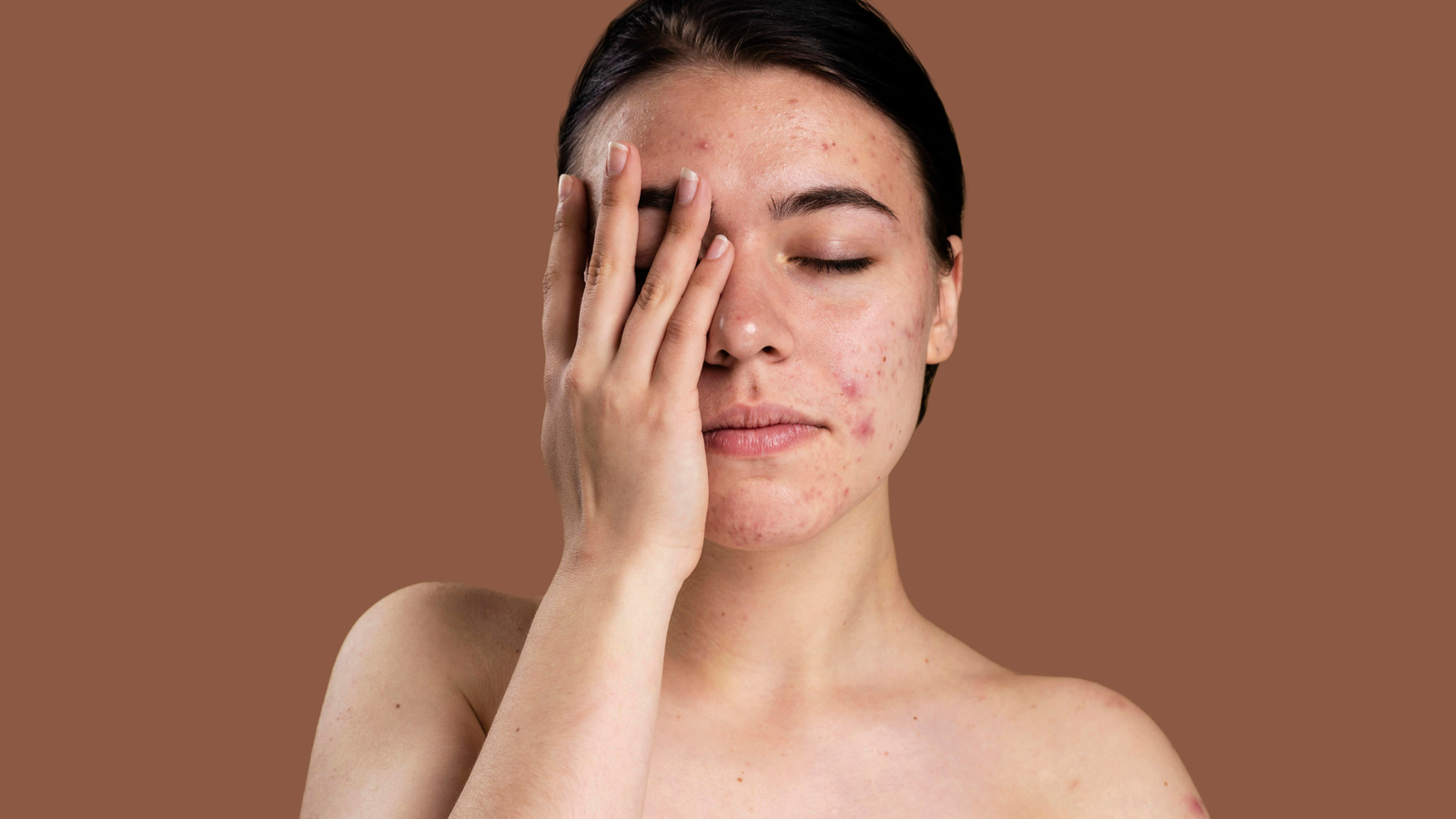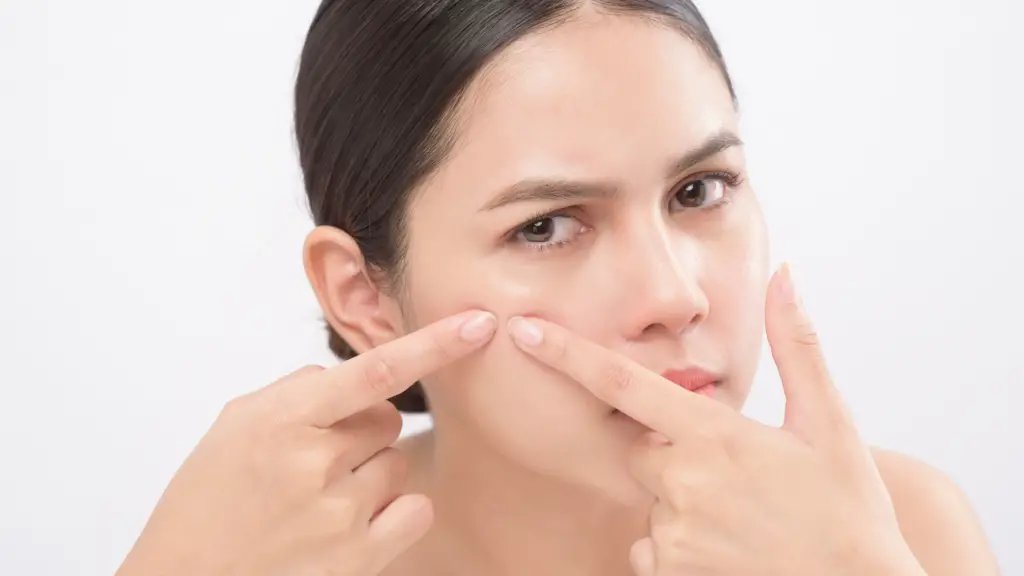[ad_1]
Acne is a common skin condition that affects people of all ages and can be both physically and emotionally distressing. One of the most common questions people ask about acne is how long it takes for acne to go away.
The answer to this question can depend on several factors, including the severity of the acne, the treatment approach, and the individual’s skin type and response to treatment.
What is Acne?
Acne is a common skin condition that occurs when hair follicles become clogged with oil, dead skin cells, and bacteria. The condition typically appears as whiteheads, blackheads, pimples, or cysts, and is most commonly found on the face, neck, chest, and back.
What Causes Acne?
Acne is caused by a combination of factors that lead to the clogging of hair follicles and the formation of pimples, blackheads, whiteheads, and other lesions on the skin. These factors can include:
Excess oil production: The skin produces oil (sebum) to keep it moisturized, but when too much oil is produced, it can clog hair follicles and cause acne.
Dead skin cells: When skin cells die, they can accumulate and mix with oil, leading to clogged pores and the development of acne.
Bacteria: The skin is home to bacteria that can contribute to the development of acne. Propionibacterium acnes are a type of bacteria that is commonly found on the skin and can cause inflammation and breakouts.
Hormonal changes: Hormonal changes that occur during puberty, menstrual cycles, pregnancy, and menopause can lead to an increase in oil production, which can contribute to the development of acne.
Certain medications: Certain medications, such as corticosteroids, testosterone, and some birth control pills, can cause acne as a side effect.
Genetics: Acne can run in families, suggesting that genetics may play a role in its development.
Environmental factors: Exposure to certain environmental factors, such as pollution, humidity, and high levels of stress, can also contribute to the development of acne.
Understanding the underlying causes of acne can help to guide treatment options and prevent future breakouts.

How Long Does It Take For Acne To Go Away?
The length of time it takes for acne to go away can vary depending on the severity of the acne and the individual’s skin type. Mild to moderate acne can take a few weeks to a few months to clear up, while more severe cases of acne may take several months or even years to improve.
It is important to note that treating acne is a gradual process, and results may not be immediately noticeable. Consistency in using acne treatment products and following a regular skincare routine can help to speed up the healing process and prevent further breakouts.
How Long Does Acne Last?
The duration of acne can vary from person to person, depending on the severity of the acne and the individual’s skin type. Mild to moderate acne can typically last for a few weeks to a few months, while more severe cases of acne may take several months or even years to improve.
It is important to note that acne is a chronic condition that can persist for many years if left untreated. However, with proper treatment and management, most people with acne can achieve significant improvement in their symptoms.
Treating acne is a gradual process, and results may not be immediately noticeable. Consistency in using acne treatment products and following a regular skincare routine can help to speed up the healing process and prevent further breakouts.
AT WHAT AGE DOES ACNE GO AWAY?
Acne can go away at any age, but it is most common during adolescence, affecting up to 85% of teenagers.
Acne typically starts around puberty when hormonal changes stimulate the sebaceous glands to produce more oil, which can lead to clogged pores and the development of acne.
For many people, acne resolves on its own during the late teens or early twenties. However, for some individuals, acne can persist well into adulthood. In fact, up to 50% of adults between the ages of 20 and 40 may experience acne.
While acne is not a chronic condition that can be difficult to treat, there are many effective treatments available that can help to control symptoms and prevent scarring.
It is important to work with a dermatologist to develop a personalized treatment plan that takes into account the severity of your acne, your skin type, and your individual needs and preferences.

How to Treat Acne?
There are several effective treatments available to help manage and treat acne, depending on the severity of the acne and the individual’s skin type. Some common treatments include:
Topical treatments: Topical treatments are medications that are applied directly to the skin and can help to reduce inflammation, unclog pores, and kill acne-causing bacteria. These treatments can include benzoyl peroxide, salicylic acid, retinoids, and antibiotics.
It is important to use topical treatments as directed by a dermatologist, as overuse or incorrect use can lead to skin irritation and other side effects. It may also take several weeks or months of consistent use to see significant improvement in acne symptoms.
Oral medications: For more severe cases of acne, oral medications may be prescribed. These medications can include antibiotics, isotretinoin, and hormonal treatments such as birth control pills.
It is important to use oral medications as directed by a dermatologist and to be aware of potential side effects, which can vary depending on the medication. Regular check-ups and monitoring may also be necessary while taking oral medications for acne.
Lifestyle modifications: Certain lifestyle modifications can also help to manage and prevent acne. These can include maintaining a regular skincare routine, avoiding picking or squeezing pimples, avoiding oil-based cosmetics and skincare products, and managing stress levels.
While lifestyle modifications alone may not be enough to treat severe acne, they can be a helpful addition to other acne treatments and can help to prevent future breakouts.
It’s important to work with a dermatologist to develop a personalized treatment plan that takes into account the severity of your acne, your skin type, and your individual needs and preferences.
Procedures: In some cases, dermatologists may recommend procedures such as chemical peels, light therapy, or extractions to help manage acne.
Chemical peels: A chemical peel involves applying a chemical solution to the skin to remove the outermost layer of dead skin cells, unclog pores, and reduce inflammation.
Chemical peels can be used to treat mild to moderate acne and can be customized based on the severity of the acne and the patient’s skin type.
Light and laser therapy: Light and laser therapy involve using specific wavelengths of light to kill bacteria, reduce inflammation, and shrink oil glands in the skin. These therapies can be used to treat mild to moderate acne and may be used in combination with other treatments.
Extraction: Extraction involves manually removing blackheads and whiteheads from the skin using a special tool. This procedure is typically performed by a dermatologist and can help to reduce the appearance of acne lesions.
Injections: Injections of corticosteroids can be used to reduce inflammation and speed up the healing process of large, painful acne lesions, such as cysts and nodules.
Microdermabrasion: Microdermabrasion involves using a special device to exfoliate the skin and remove dead skin cells, which can help to unclog pores and improve the appearance of acne. This procedure is typically used to treat mild to moderate acne.
Procedures can be an effective way to treat acne, but they may also come with certain risks and side effects. It’s important to work with a qualified dermatologist to determine which procedures may be appropriate for your individual needs and skin type.
It is important to work with a dermatologist to develop a personalized treatment plan that takes into account the severity of your acne, your skin type, and your individual needs and preferences.
Consistency in using acne treatment products and following a regular skincare routine can help to speed up the healing process and prevent further breakouts.
Conclusion
In conclusion, the time it takes for acne to go away can vary depending on the severity of the acne and the treatment approach used.
Mild to moderate acne may improve within a few weeks to a few months with appropriate treatment, while more severe cases of acne may take several months to a year or more to improve.
It’s important to work with a dermatologist to develop a personalized treatment plan that takes into account the severity of your acne and your individual needs and preferences. With the right treatment approach, acne can be effectively managed, and its impact on quality of life can be reduced.
[ad_2]




